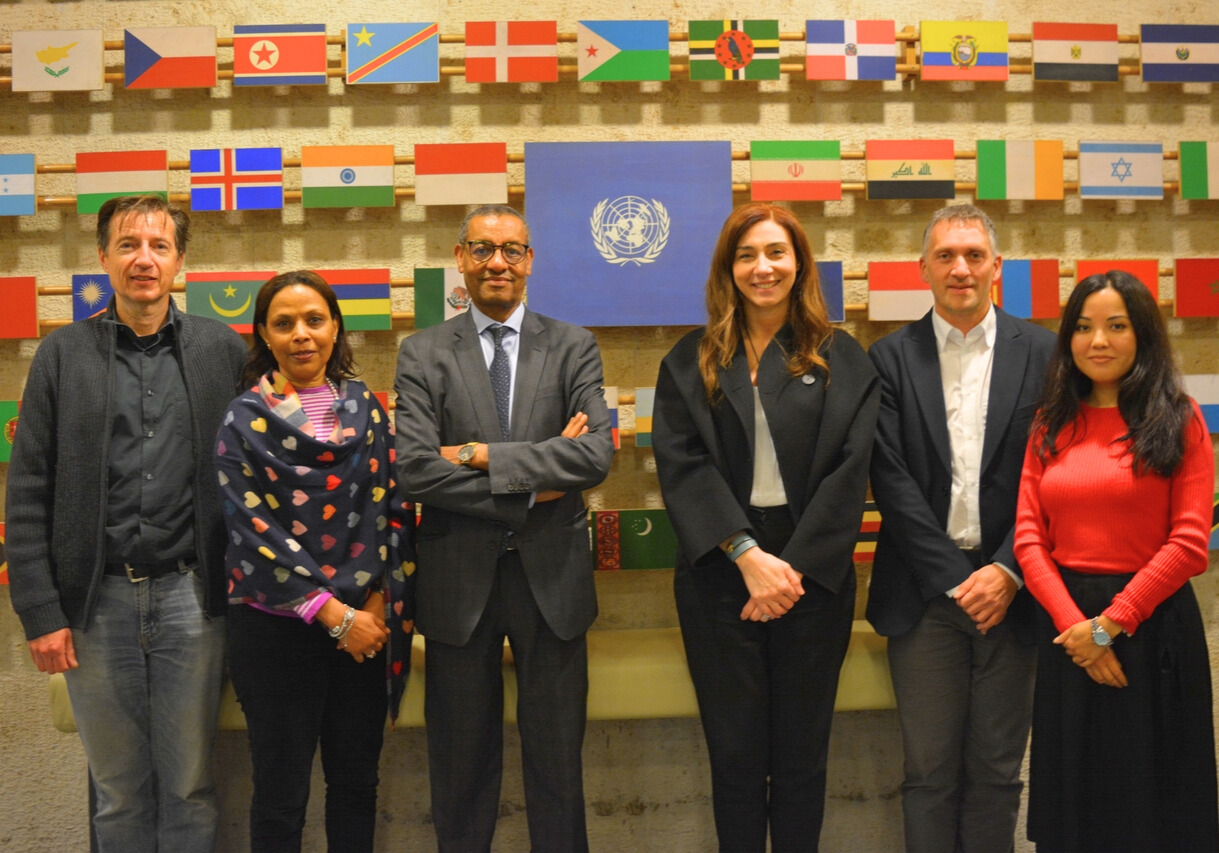FAO and UNIDO working together to drive transformation of agrifood systems

11 April 2024, Rome
A recent annual review of progress on FAO and UNIDO’s Partnership Action Plan highlights how collaboration between the two organizations is obtaining results in areas including agrifood systems transformation and zero hunger.
The Food and Agriculture Organization of the United Nations (FAO) and the United Nations Industrial Development Organization (UNIDO) recently conducted the first annual review of the FAO-UNIDO Partnership Action Plan, which stems from a Memorandum of Understanding (MoU) signed between the two organizations in October 2022.
In line with the MoU’s objective of fostering cooperative efforts, the FAO-UNIDO Action Plan has seven areas of collaboration:
- Agrifood systems transformation and agribusiness value chains
- Job creation
- Food security, food safety and control, mitigation of environmental pollution in agrifood systems, circular economy and sustainable bioeconomy
- Joint normative work on global issues related to zero hunger, food safety and agrifood systems
- A secondment programme between the organizations
- Multilateral collaborations
- Agricultural investments, spatial infrastructure development (parks and corridors), the Food-Water-Energy-Ecosystem nexus, digitalization, desertification and urban farming innovation
FAO and UNIDO discussed the progress of their joint activities – including new areas of work that have been identified over the past year – explored challenges and opportunities, shared lessons learned, and discussed the way forward.
Results and further objectives
Among the achievements, important milestones have been reached and future actions identified in the implementation of Opportunities for Youth in Africa (OYA), a joint FAO-UNIDO programme aimed at accelerating job creation and entrepreneurship in agriculture and agribusiness. Strategies for country level capacity development, knowledge sharing activities, policy support, and resource mobilization strategies have been developed to support youth and create favourable conditions, and the programme will continue to expand to benefit more young men and women in Africa and explore partnerships for collaboration and scale-up of pilot activities.
On food security and agrifood systems transformation, UNIDO has contributed to action plans on national pathways for agrifood systems in countries in which the Organization is represented. As a subsequent step, UNIDO will support FAO in operationalizing, integrating, and localizing these national pathways.
Value chain analysis in the forestry sector is another field that will receive greater focus, including date processing and enhancing tea and bamboo value chains. In the context of urban food systems, joint work on the Green Cities Initiative, urban farming, food loss and waste and the bioeconomy will be explored.
In collaboration with the International Atomic Energy Agency (IAEA), FAO and UNIDO will jointly mobilize resources and organize side events for the Food Safety Symposium in Vienna in May 2024, building on a previously developed project proposal to support food safety systems and enhance food security in Africa.
The Agrifood Systems Transformation Accelerator
The review coincided with a visit by UNIDO representatives to FAO Headquarters, which included a strategic discussion on FAO and UNIDO’s joint flagship initiative, the Agrifood Systems Transformation Accelerator (ASTA). This global programme is designed to enhance the sustainability of agrifood systems by fostering and promoting innovation, partnerships, and investments.
Significant advancements have been achieved under the ASTA programme, which is now active in six countries. Notably, in Nigeria and Suriname, facilitation programmes are collaborating with multi-stakeholder partnerships to help countries operationalize their food systems transformation processes in fundamental and innovative ways. ASTA has established a robust collaboration with FAO’s One Country, One Priority Product (OCOP) programme, which continues to expand its reach to an increasing number of countries. A suite of supporting materials, including a website, brochures, and partnership engagement resources, will be launched in the near future.
New areas for collaboration
New joint areas for collaboration under the Action Plan were identified during the discussions and will be implemented in the coming year.
These include strategic level engagements, such as World Food Forum activities, awards for innovation startups in agrifood systems transformation, COP29, the World Without Hunger Conference, joining forces on a new global gender project, and other potential joint projects on agrifood systems transformation, funded by the Global Environment Facility (GEF). Further work will be pursued on the crucial milestones achieved on energy smart agrifood systems for climate actions. Collaboration in the context of the Global Bioenergy Partnership, where UNIDO is a member, will also be a focus in 2024, and joint activities under the Green Cities Initiative are anticipated in Africa and Latin America.
Looking forward, FAO and UNIDO are natural partners in the global transformation agenda and are well placed to continue their strategic engagement for the benefit of their Members.
